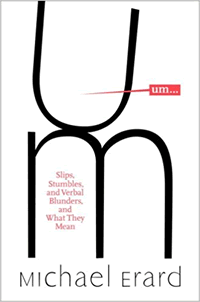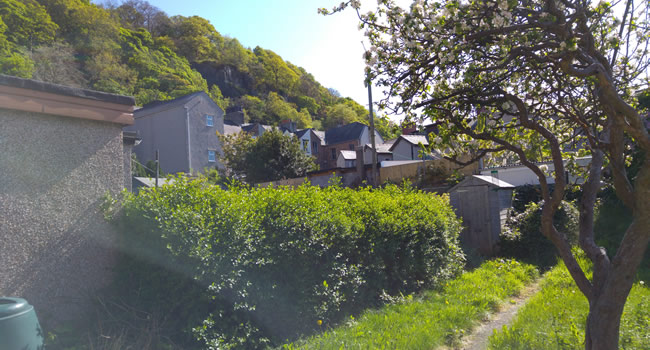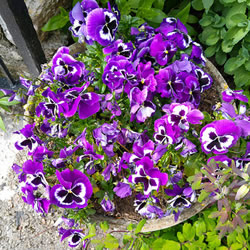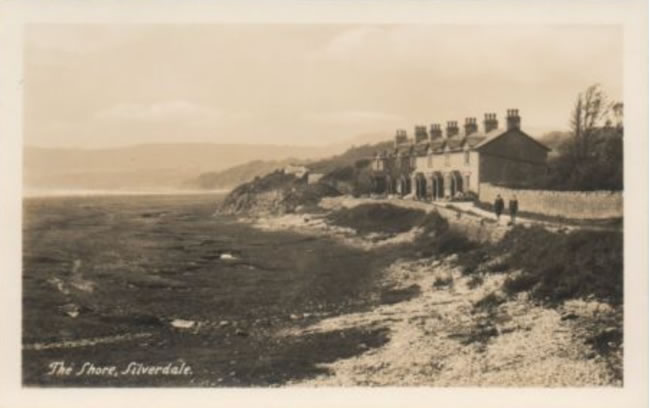| français | English | Cymraeg |
|---|---|---|
| la station métérorologique = weather station | gorsaf dywydd | |
| la station balnéaire | seaside resort | tref lan môr |
| la station de ski | ski resort | cyrchfan sgi |
| la station thermale | spa | tref ffynhonnau, sba, ffynhonfa |
| la station de lavage | car wash | golchfa geir, lle golchi ceir |
| l’accord (m) | deal (agreement) | bargen, cynnig |
| hors de portée | beyond/out of reach | allan o gyrraedd, y tu hwnt i’ch cyrraedd |
| à portée (de qn) | within reach (of sb) | o fewn cyrraedd (i rywun) |
| se remettre (de); se rétablir (de) | to recover (from illness) | gwella |
| vertical | vertical | unionsyth, fertigol |
| le kitesurfing | kitesurfing | barcudfyrddio |
| l’élan (m) | elk (European) | elc, cawrgarw |
| l’orignal (m) | moose (Canadian) | elc |
| crise des cinquante | midlife crisis | argyfwng canol oed |
| l’examen | (medical) check up | archwiliad |
| la caisse | crate (for bottles, china) | cawell, bocs rhwyllog, crât, crêt |
| le cageot | crate (for fruit, veg) | cawell, bocs rhwyllog, crât, crêt |
| la vis | screw | sgriw, hoelen |
Category: English
Improvements to Omniglot

Recently I’ve been making a lot of small improvements to Omniglot. An American gentleman from Michigan has very kindly been proofreading parts of my site, and sending me long lists of corrections and improvements. So far we’ve worked through the languages written with the Latin alphabet from A-J.
I’ve corrected errors, edited and improved language descriptions, re-done many alphabet charts, added links to the Excel spreadsheets I use to create the charts, and added sample texts and videos, if I can find them. The alphabet charts (and other images) scale to fit the size of the screen you’re using to view my site, and I try to make them legible even on small screens.
Many other people send me suggestions for corrections and improvements, and I welcome all your feedback. If you spot anything on Omniglot that needs correcting, changing or improving, do let me know.
By the way, the number of visitors to Omniglot has diminished somewhat recently. I don’t know why, but would be grateful if you could recommend to site to everyone you know who is interested in languages.
Harmony-loving chorus
Last night I went to an excellent concert at the Pontio Arts Centre featuring the Royal Liverpool Philharmonic Orchestra and the brilliant harpsichordist, Mahan Esfahani.
As well as enjoying the concert, I started thinking about the word philharmonic – what it means, where it comes from, and why it features in the names of many orchestras.
According to Wiktionary, philharmonic means “appreciative of music, but especially to its performance” or “A full-size symphony orchestra”. It comes from the French, philharmonique, from the Italian filarmonico (loving harmony), from the Greek φίλος (phílos – dear, beloved) + αρμονικός (armonikós – harmonic, harmonious) [source].
The name philharmonic was adopted by the Royal Philharmonic Society, which was established in London on 6th February 1813 by a group of thirty professional musicians. Its aims were to promote performances of instrumental music, and to build an orchestra, which initially played at the Argyll Rooms on Regent Street. Before then there were no permanent orchestras in London. After the Society was formed, other orchestras started to the word philharmonic to their names.
The word orchestra comes from the Greek ὀρχήστρα (orchistra), which was the area in front of the stage in an ancient Greek theatre reserved for the chorus, and comes from the word ὀρχοῦμαι (orkhoûmai – to dance).
The word symphony (an extended piece of music of sophisticated structure, usually for orchestra) comes from the Old French simphonie (musical harmony; stringed instrument), from Latin symphonia (harmony, symphony; a kind of musical instrument), from Ancient Greek συμφωνία (sumphōnía – symphony; a concert of vocal or instrumental music; music; band, orchestra; type of musical instrument), from σῠν- (sun – with, together) + φωνή (phōnḗ – sound) [source].
For the past several years
Does anything strike you as odd about the title of this post?
I came across this wording today in a book by an American author, and immediately thought, “don’t you mean ‘for the past few years’?”. For me that would be a more natural way to express this. Several in this context just sounds wrong. Maybe it sounds natural and normal to you.
Several is defined on WordReference.com as:
1. being more than two but fewer than many (there’s nothing like precision, is there?)
2. separate; different
3. individual; respective
4. several persons or things; a few; some
Several comes from the Anglo-Norman several (separate), from the Medieval Latin sēparālis, from the Latin sēparāre (to separate).
Les mots de la semaine
| français | English | Cymraeg |
|---|---|---|
| sauter, sautiller, houblonner | to hop | hopian |
| la musaraigne | shrew | chwistlen, chwistl, llygoden goch |
| le rendez-vous | appointment | trefniad |
| le plâtre | plaster cast | cast plastr |
| l’accessoire | feature (of product, computer, etc) | nodwedd |
| la saillie | (mountain) ledge | sil, silff, ysgafell |
| la balançoire | (playground) swing | siglen |
| le toboggan | (playground) slide | sleid, sglefren, sglefr, llithren |
| le toboggan, la luge | toboggan, sledge | sled, tobogan |
| le toboggan de piscine | water slide | sleid ddŵr |
| euthanasier, (faire) piquer, faire abattre | to put down (an animal) | rhoi i gysgu, difa, lladd |
| le fusilier marin | marine (soldier) | môr-filwr |
| le marines | the Marines | y môr-filwyr |
| la rédaction | (school/college) essay | traethawd |
| mettre au lit, coucher | to put to bed | rhoi/dodi yn ei wely |
| tordre, tortiller | to twist | cyfrodeddu, cordeddu, crychu, plethu |
| se tordre le cheville / le poignet | to twist one’s ankle/wrist | troi’ch ffêr/arddwrn |
| la sueur | sweat | chwys |
| suer | to sweat | chwysu |
| le chewing-gun | chewing gum | gwm cnoi |
The Aesthetic of Umlessness

The title of this post comes from a book by Michael Erard that I’m currently reading: Um. . .: Slips, Stumbles, and Verbal Blunders, and What They Mean.
It’s an interesting book that discusses how we all tend to um and er (or uh) in speech, and get words mixed up, correct ourselves, and make various other verbal blunders. In ordinary everyday speech we tend to ignore such stumbles, unless they get in the way of communication. When we listen to people on the radio and TV, and giving formal speeches and lectures, we might notice such slips more, especially in the speeches of politicians.
The aesthetic of umlessness refers to the idea that formal speeches should be as um-free as possible. It is something that emerged in the early 20th century, especially with the invention of microphones, recording equipment, radio and TV. Before then, advice for public speaking and oratory, which goes back to ancient Greece, rarely mentions the need for umlessness.
Ums and ers have various functions in speech, which Erard discusses, and one scholar he interviewed said that ums and other verbal fillers are an essential part of speech – they add information about intentions and thoughts separate from the main meaning of what you’re saying.
Do you um and er/uh frequently? Does it depend on the context?
What verbal fillers are used in other languages?
A Polyglot’s Guide to Place Names of Canada & the United States
Today we have a guest post by Amit Raj
Wherever you find yourself in the States or Canada, you are likely to find most voices around you are speaking in English, French, Spanish, or another modern European language. But dotted among the vocabulary of the typical American will be a number of words that we all profess to understand, without knowing their true meaning: place names!
With their roots in native languages or their meanings and pronunciations altered over the decades and centuries, these often romantic-sounding words instantly conjure a mental picture of lakes, mountains, big cities or sleepy villages, depending on that place’s prevailing image.
Funnily enough, while these place names conjure up such landscapes by association, the original meaning of the names – almost forgotten over time – often refer quite literally to the physical characteristics of the place. For example, the state of Arizona seems to be named for a native word for ‘small spring’ while, within that state, Tucson is a Pima O’odham word meaning ‘black base’ – and no wonder since that city lives in the shadow of nearby Black Mountain.
Meanwhile, the Canadian province of Saskatchewan is quite simply named for the Saskatchewan River that runs across it. That river is in turn named after itself, given that Saskatchewan if a Cree aboriginal word meaning “swift flowing river”.
There are few more pleasurable pastimes for the sworn word addict than tracing the detailed etymology of a curious word or phrase, and the place names of Canada and the United States can become a real wormhole once you get started. This new infographic from Expedia is a great starting point, being as it is a detailed map of the region with informed suggestions on what a number of place names truly mean. Get stuck in, learn a bit about where you’re from, and maybe you’ll even find some conclusions to argue with!
The Literal Translation of Places in Canada & the United States, courtesy of Expedia.ca
Back to Bangor
I finally returned to Bangor today after nearly 3 weeks away – I was only planning to be away for 3 days, but due to the slight mishap in London (a broken ankle), my plans changed a bit.
My mum has looked after me very well, and been doing the cooking, laundry, shopping, etc. I’ll have to find ways to do those things myself back in Bangor.
Last Friday I went to the hospital in Lancaster for a check up on my broken ankle. They put a new plaster cast on it and said that it’s healing well. I can even put a bit of weight on it.The plaster is due to come off at the end of May, and I’ve arranged for this to be done in Ysbyty Gwynedd (Bangor hospital).
I was planning to go to the Polyglot Gathering in Bratislava at the end of May, but have reluctantly decided to cancel that trip. I doubt I’ll be ready for such an adventure as soon as the cast comes off, as it’s likely to take a month or so before I’m fully mobile again.

It’s a beautiful day here in Bangor, my apple tree is in bloom, and my garden went a bit wild while I was away (see photo). I’ll need help to tame it, I think.
It was great to hear some Welsh on the train on the way back – I’ve missed it.
Heartsease

Heartsease, or heart’s-ease, is one of the names for the pansy (see photo), both garden and wild varieties. This name apparently comes from St. Euphrasia, whose name means ‘cheerfulness of mind’ in Greek.
Other names for the garden pansy, or Viola tricolor hortensis / Viola x wittrockiana, include: viola, violet, love in idleness, or kiss-me-quick.
The name pansy comes from the French word pensée (thought). It came into English in the mid-15th century as the name for the viola.
The name love in idleness was meant to imply the idea of a lover who does nothing but think of his or her beloved.
The wild pansy, or Viola tricolor, is variously known as: Johnny Jump up, heartsease, heart’s ease, heart’s delight, tickle-my-fancy, Jack-jump-up-and-kiss-me, come-and-cuddle-me, and three faces in a hood.
In Russian the pansy is known as Анютины глазки (Anyutiny glazki – Litte Annie’s Eyes).
In German the pansy is known as Stiefmütterchen (Little Stepmother), Muttergottesschuh (Mother God Shoe), Mädchenaugen (Girl’s Eyes), Schöngesicht (Beautiful Face) or Liebesgesichtli (Love Poems).
Does the pansy have interesting names in other languages?
Some other flowers that begin with P
Sources: Wikipedia, Google Translate
A postcard view
Last night I went to an interesting talk about postcards at the local history society. Various people, including my mum, have collections of postcards of Silverdale and/or sent from Silverdale, and there was a project at Lancaster University to scan, transcribe and study the cards. There is also a book entitled Old Silverdale: The Loveliest Spot on Morecambe Bay which features postcards from Silverdale.

The talk focused on postcards that were sent from Silverdale between about 1900 and the 1930s. Looking at the kind of things people wrote on them, their handwriting, style of writing, punctuation and so on. Apparently some of the cards in the collection were written backwards, upside down or in a spiral to make it more difficult for postmen to read them. Some even used rebuses*.
When the postcards were sent there were a lot more postal deliveries – several every day – so it was possible to send a card in the morning, and to receive a reply the same day. They were used somewhat like text messages and other social media are today, and just like text messages, there was no standard way of writing them, so people wrote however they wanted. Short, incomplete sentences. Minimal punctuation. Abbreviations and accronyms, and some rather exsentrik spellin.
Certain people at the time were apparently concerned that postcards could bring the end of formal written language, and that people would start writing any old how. Similar concerns have been expressed about text messages, online chat and so on. This TED talk explains why such fears are not justified.
The speaker also mentioned that when people write postcards they tend to use more elaborate, flowery and even poetic words than they might normally do. They talk about ‘wooded glades’ and ‘fragrant breezes’, ‘delightful weather’, ‘glorious sunshine’, and such like.
Do you still send postcards? If not, do you remember when you last did?
Do you have a particular way of writing them?
It’s a long time since I sent a postcard – at least 10 years, I think, maybe longer.
* A rebus is a puzzle in which words are represented by combinations of pictures and individual letters.
